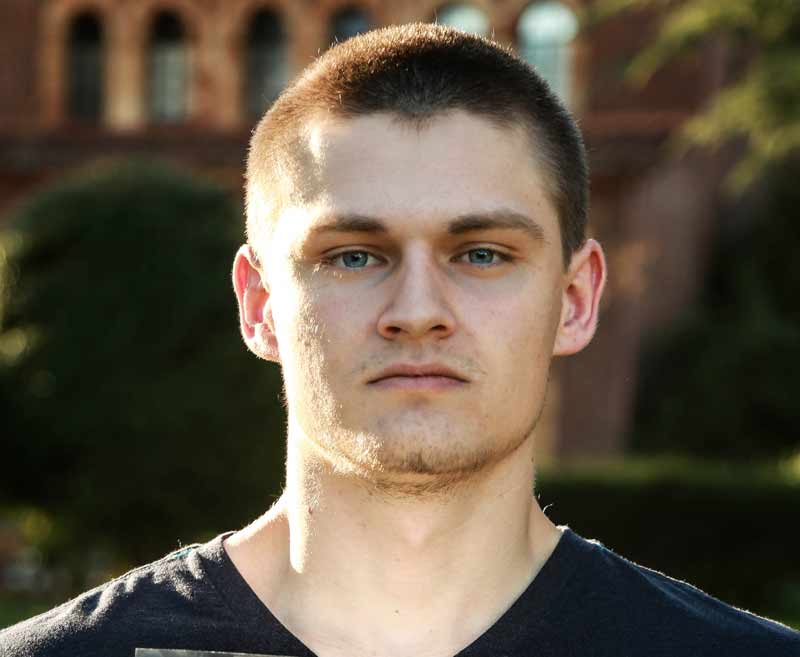
Once or twice, Evelina Trinchuk, 36, and her husband, Tolik, headed to Kiev’s central square, the capital of Ukraine, not knowing whether they’d make it home at the end of the night.
Protesters like them faced three other possibilities: arrests, beatings or death — all at the hands of Berkuts, a subdivision of Ukrainian police officers.
“These people were most cruel,” Trinchuk said. “They tortured both men and women. They killed. They exploded personal vehicles.”
Though Trinchuk felt helpless because she could do nothing as others died right before her eyes, she also felt angry and confused.
“I could not understand how all that mess could happen in the middle of Europe in the 21st century,” Trinchuk said.
Nearly 100 Ukrainians have died since violence erupted in February, according to CNN.
Though the story of the Ukraine is complex, recent conflicts boil down to the people’s dissatisfaction with former pro-Russian president Viktor Yanukovych’s refusal to sign a trade agreement with the European Union, said Kate Transchel, a good friend of Trinchuk and a Chico State professor of Russian and East European Studies.
While the majority of Ukrainians sided with the European Union, a minority of Russian-speaking Ukrainians sided with Russia, wanting to maintain close ties with the country, Transchel said.
This minority lies within Crimea, an autonomous republic in southeastern Ukraine, and along the eastern borders of the country.
In March, Russian troops occupied Ukraine in an attempt to annex Crimea. The United States and the European Union disapproved and placed sanctions on Russian officials, as reported by CNN.
Transchel worries for the lives of her friends and for a possible civil war or war between Ukraine and Russia. Trinchuk and her husband live in Kiev, in the middle of the worst violence.
“This is probably the most important international event since the collapse of the Berlin Wall,” Transchel said.
Transchel grew up during the Cold War. She remembers ducking beneath her desk in school for drills. As an American, she grew up believing Russians hated her, she said.
Russian history became her passion, so Transchel visited Russia and Ukraine to write her dissertation in Russian and Soviet history.
This part of the world is her expertise. Transchel lived in this area for two years, where she met the Trinchuks and several other friends.
Her friends, Tanya and Volodya, whose last names she omitted for their protection, live in Lutsk, a city in western Ukraine. They sew socks, gloves and hats for the protesters and send food and money for the fight against Russia, she said.
Trinchuk worked full time for the Ukrainian government in the Cabinet of Ministers, so she was too busy to hit the streets. Instead, she began sending medical supplies and helping the wounded.
She lost her job after pro-Russian president Viktor Yanukovych was forced out of office in February and had more time to protest.
“These people are educated,” Transchel said. “They’re upper-middle class people. They’re like you or I and to think they have to go through this. Their lives are disrupted.”
Chico State junior Yaroslav Lazurenko has family who lives in Chernigov, a small village in northern Ukraine. Though the violence hasn’t hit home, their lives can still be affected, he said.
Russia imports Ukraine’s natural gas, so his family would be left without any of it if Russia chooses to cut it off, he said. His family members are scared of losing their jobs too because many jobs are state-supported or government jobs.
“Fuck Russia,” Lazurenko said.
Transchel offered her home as refuge to her friends in case civil war breaks or Ukraine goes to war with Russia.
Trinchuk urges students to assemble petitions to their governments asking them to do what they find necessary in regards to Russia as a “worldwide threat to a peaceful normal life.”
If Russia can fail to acknowledge Ukraine’s new government, it can do the same to other countries, she said.
“Tomorrow they will send their troops to the U.S. with the same message,” Trinchuk said. “Would you like it?”
Three months ago, Trinchuk never would’ve imagined this happening to her country.
“I hope you never have to go through this.”
Yessenia Funes can be reached at [email protected] or @yessfun on Twitter.








